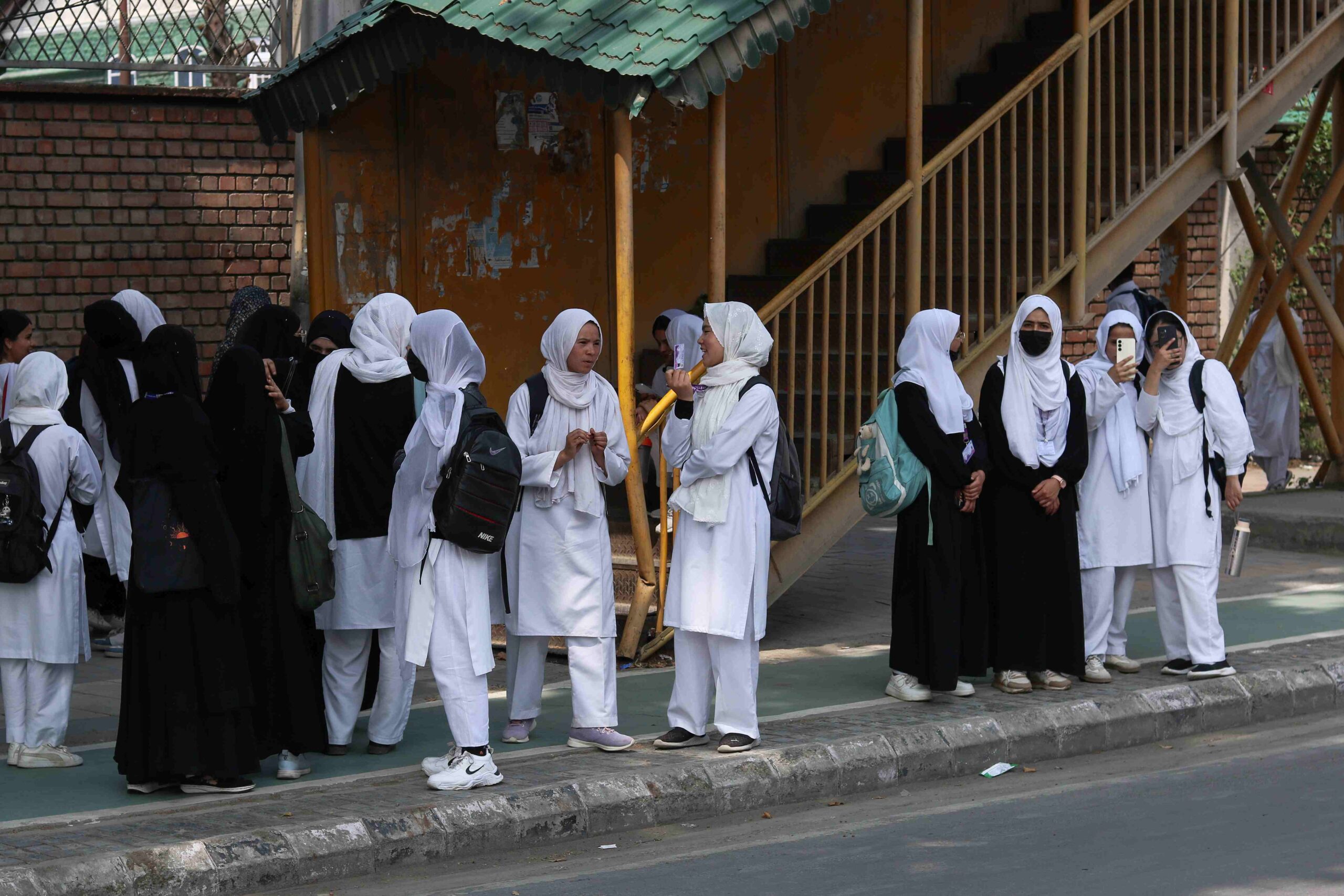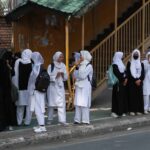Hussain Mir
Jammu and Kashmir’s famous meadow valley, Baisaran in Pahalgam, where tourists come from different parts of the world to witness nature’s breathtaking landscapes. However, the densely attractive meadows turned into carnage when the terrorists fired indiscriminately and gunned down 26 tourists and injured 17. The attack marks the deadliest chapter in Kashmir’s history so far.
From Kashmir to America, all the global leaders condemned the terror attack, Russian President Vladimir Putin and US President Donald Trump, expressed their condolences. On the same day, India’s home minister, Amit Shah, arrived in Srinagar, the summer capital of the disputed region. “ Those behind this heinous act will be brought to justice. they will not be spared,” Indian Prime Minister Narendra Modi declared on social media. Even as the armed assailants who carried out the attack were still at large, The Resistance Front, an offshoot of terror organization Lashkar Taiba, initially took the responsibility for the attack. However, as whole Kashmir condemned this attack with one voice, the TRF said it was a cyber intrusion, they didn’t carry out the attack. Following the attack, Indian authorities blamed Pakistan for the Baisaran carnage, they denied and called for “neutral investigation” but Kashmiri students and several muslims in India faced the brunt of anger from Bajrang Dal workers, and even death threats were issued.
New Delhi has launched a full-scale diplomatic offensive against Pakistan, accusing Islamabad of harboring and enabling terror outfits operating across the border. The Modi-led government has responded with unprecedented steps, including suspending the historic Indus Waters Treaty of 1960, halting SAARC visas for Pakistani nationals, and sealing the Wagah-Attari border.
From lodging formal protests to rallying international support at the UN and in key global capitals, New Delhi is reshaping the narrative and tightening diplomatic pressure.
Blamed Kashmiri and Muslims in General
The Indus Waters Treaty, which plays a crucial role in agriculture across Pakistan’s Sindh and Punjab provinces, now stands in abeyance. The move is expected to affect thousands of farmers and could be a significant blow to Pakistan’s GDP. India has declared that it is no longer a participant in, or bound by, the treaty. This escalation may further intensify tensions between the two nuclear powers.
On Indian television networks and social media, the Pahalgam attack has sparked a surge of ire that is occasionally aimed not only at Kashmiris but also at Muslims in general. The Stop Hindu Hate Advocacy Network wrote on X that Kashmir ought to be destroyed like Gaza. Influential right-wing anchor Arnab Goswami used the hashtag #WeWantRevenge led his show the night of the incident, saying that April 22 was for Indians what October 7, 2023 was for Israelis.
A Hindu nationalist organisation in Uttarakhand released a video last week threatening to “give them the right treatment if we see any Kashmiri Muslim in the state after 10 a.m. tomorrow.” Dozens of Kashmiri students had been attacked in Nagpur and Chandigarh. Kashmir’s senior journalist, Sanam Ajaz said that the “Godi media” has coined specific terms to denigrate muslims. Earlier they used to say Islamic terrorism, then Muslim terrorism, now Kashmiri terrorism. “ Hundreds and thousands have been killed in Manipur, none of the Godi Media reporters went there to cover ground realities. However, after the Pahalgam attack, all have been assigned to disseminate anti kashmir and anti muslim narratives,” he said.
To unmask this vilified campaign against muslims and Kashmiries, wife of slain Indian Navy Vinay Narwal, Himanshi made a heartfelt appeal to the people of India, “maintain peace and unity,” she said.
While urging the citizens, she added that not to direct their anger toward Muslims or Kashmiris. “We don’t want people going against Muslims or Kashmiris. We stand firmly against growing communal polarization,” she added.
According to reports, the young couple had been married for just six days, on April 16, and were on their honeymoon when the terror attack took place in Pahalgam. Her statement comes amid growing reports of targeted harassment and violence against Muslims and Kashmiris in the aftermath of the attack. Over 2,000 persons had been arrested, summoned, and questioned by the forces in relation to the case. The raids and search operation had been going on since April 22, IGP (Kashmir) VK Birdi said that 75 people were slapped with Public Safety Act (PSA). According to sources, J&K Police has targeted specific people for in-depth interrogation. The police have conducted multiple raids and disrupted networks of overground workers.
India’s Initiatives Aftermath of the Attack
To combat the terrorism, authorities in Kashmir have destroyed at least nine residential homes belonging to alleged Lashkar-e-Taiba (LeT) militants for the last three days. The residential homes of nine suspected terrorists, some of whom are believed to have been involved in the Pahalgam attack, were reportedly destroyed on Sunday, April 27, in the Kashmir districts of Anantnag, Bandipora, Kupwara, Kulgam, Pulwama, and Shopian. Two of them were blown up on Saturday night, and seven of these were destroyed on Thursday, April 24, and Friday, April 25.
Speaking with the media, a resident of Sheikhpora area in Muran, Pulwama, said that forces demolished the house of the family of active militant Ahsan ul Haq. But other houses of neighbours were damaged. One of the neighbours had scheduled a wedding. His house is lying in debris, nothing is left. He said that window panes, doors, across the entire area were smashed by the impact of two blasts. They could have simply brought a bulldozer to demolish just one house, why punish others. Srinagar Member Parliament, Aga Syed Ruhullah Mehdi said: Kashmir and Kashmiris are being given a collective punishment. Political leaders in Jammu and Kashmir have responded sharply to the ongoing operation against suspected terrorists. Peoples Democratic Party (PDP) chief and former Chief Minister Mehbooba Mufti emphasised the need to differentiate between terrorists and civilians during counter-terrorism operations after the attack that killed 26 tourists, while as Chief minister Omar Abdullah stated that strong action must be taken against terrorists.
“ We are resolved to crush terrorism,” PM Modi added, expressing complete confidence in the professionalism of the armed forces in reacting to the Pahalgam incident. The armed forces have complete operational freedom to choose the strategy, objectives, and timing of India’s reaction to the April 22 Pahalgam terrorist attack in Jammu and Kashmir.
According to officials, since April 24, at least 537 Pakistani nationals including nine ambassadors and other top officials have left India across the Attari-Wagah border, 850 Indians have also returned from Pakistan via the international border crossing in Punjab, including 14 diplomats.
Kashmir’s separatist leader, Mivaiz Umer Farooq said: Kashmiris’ condemnation, empathy, and grief for the victims of the Pahalgam bloodbath is straight from the heart, yet they are being vilified and targeted. I appeal to the people of India not to fall prey to hatred and media propaganda creating mistrust of Kashmiris, and reciprocate in ensuring their safety, as they have always done in times of crisis towards all visitors and tourists. The collective punishment being meted out to them both inside and outside Jammu and Kashmir is unjust and inhuman
Senior Jama-e-Islami leader Shamim Ahmad Thoker, who founded the Justice Development Front, denounced the demolition operation, claiming that women, children, and the elderly are being impacted by the loss of homes. If the operation cannot be stopped, he requested the government to think of other options. “ As Indians, we categorically denounce the Pahalgam terror attack. However, the bombing of terrorists’ homes, which also affects nearby communities, needs to stop. The entire neighbourhood where these explosions occur is impacting others, time for the Prime Minister and the Home Minister to put an end to it. “The elderly, women, and children are extremely afraid of these demolition operations,” he added.
Punishing Wives of Former Militants
The heads of the States and Union Territories were instructed by Union Home Minister Amit Shah to promptly identify, remove, and deport Pakistani individuals from their respective States and Union Territories following the Pahalgam attack. Punjab’s Wagah border witnessed emotional scenes as Pakistani nationals being forced to leave Indian states. One among them is Mufzala, originally hailing from Pakistan’s Muzaffarabad, married five years ago in Kashmir’s Baramulla area. She was mentally disturbed after receiving a deportation notice from the police, which reads: “Notice to leave India.”
“ I have two children, why should we be punished? We equally condemned this terror attack, and demand stern punishment to be given to the terrorists behind the attack,” Mufzala said, while being deported.
As people call for revenge and bring the perpetrators to justice, the Indian authorities announced bold decision to cancel all visas and OCI cards issued to Pakistani nationals, the lives of dozens of Pakistani women who came to disputed Kashmir after marrying with surrendered militants under the 2010 J&K Rehabilitation Policy, as many as 377 former militants along with 864 family members returned from Pakistan under the policy.
These women had returned to Kashmir with their husbands who had given up arms and hoped to reintegrate into society. Most of them entered India through Nepal or other unofficial routes, expecting the government to eventually regularize their status.
So far, sixty Pakistani women and their children were deported to Pakistan through the Wagah border in Jammu and Kashmir; families gathered from regions such as Budgam, Shopian, Kupwara, Baramulla, and Srinagar were transported to Punjab in buses so they could be handed over to Pakistani officials.
Eleven citizens of Pakistan who had been to India in Mendhar, Poonch, about forty-five years prior on legitimate visas were also deported.
Deadly Blow to Trade
For many citizens on both sides of the border, it is a painful separation from their loved ones. In Punjab, India shuttered the Integrated Check Post at the Attari border, and Pakistan closed the Wagah border. The only land route connecting the two countries for trade and passenger transportation is the Attari Wagah border. According to its 2024 Economic Survey, Pakistan’s economy is mostly reliant on agriculture, which accounts for roughly 24% of its GDP and 37.4% of jobs. Dr. Manoranjan Sharma, a Chief Economist, Infomerics, India said that Pakistan’s economy, which is already having difficulties, might suffer greatly if India entirely stops the Indus river. Pakistan has responded by putting the Shimla Agreement on hold.
According to Indian international trade lawyer Shantanu Singh, who spoke to Al Jazeera, stating that Pakistan’s pharmaceutical industry will be immediately impacted by the current trade ban.
The majority of India’s imports into Islamabad are pharmaceuticals. Additionally, he said that trade costs would rise as a result of the closing of the Wagah-Attari Integrated Check Post (ICP), the sole land port that allowed trade between India and Pakistan. “land ports make transportation easier and less expensive, hence the closing of this land port would result in higher trade expenses overall. It will negatively impact Afghan trade because this land route was also used for Afghan imports,” Singh added.
Hussain Mir is an independent journalist based in Kashmir. The content in this article is strictly authors’ own. NewsEye does not take any responsibility for the accuracy, completeness, suitability, originality, and not plagiarised, or validity of any information on these articles. The information, facts or opinions appearing in these articles in no way reflect the views of NewsEye, and we do not assume any responsibility or liability for the same. The responsibility of the content, in whatever manner, is solely, and totally, authors’.












